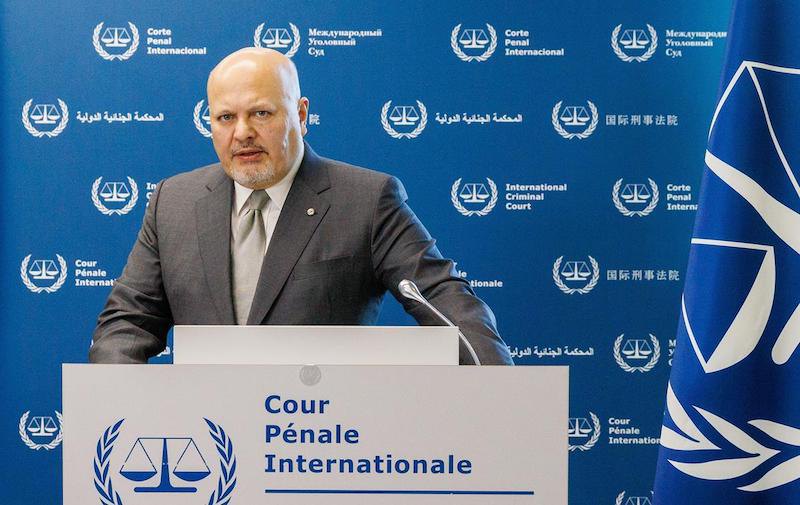War always brings grief, pain, suffering, and loss. On paper, war is waged by one state against another and is aimed at destroying an opponent’s military potential, including its armed forces and military equipment and facilities. But, Russia’s war in Ukraine has already led to mass killings of civilians and widespread destruction of residential buildings.
Having launched the full-scale invasion of Ukraine on February 24, 2022, the Russian army has been frequently violating the rules of war by shelling evacuation routes, targeting civilians, including healthcare professionals, and using weapons that international humanitarian law forbids to employ in residential areas. The occupants have been demolishing residential buildings, hospitals, schools, and kindergartens, inflicting death and suffering on innocent people inside their houses and on the streets. These war crimes have been committed intentionally and cynically.
Although such crimes do not have a statute of limitations, it is crucial to gather the necessary evidence as soon as possible. This includes taking photos and video recordings and submitting them to human rights organizations and law enforcement bodies, which allows effective documentation of crimes and their subsequent investigation in national criminal proceedings and international tribunals.
Intensive fighting is raging throughout Ukraine, and official data about the number of civilian victims of Russian aggression is far from definitive. As of March 22, 2022, the Office of the UN High Commissioner for Human Rights recorded 2,510 civilian casualties in Ukraine, including 953 killed and 1,557 injured. According to Lyudmyla Denisova, Ukraine’s Ombudsman for Human Rights, 117 children have been killed and 155 injured since the start of the war.
A swift collection of evidence can help get the full picture of crimes committed by Russian occupants and hold them accountable. By starting this process early, we will speed up the eventual punishment of the aggressor.
Already on February 27, Volodymyr Zelensky said that Ukraine had filed an official suit against the Russian Federation to the UN International Court of Justice in The Hague. Following Russia’s statement about the “genocide of Russian-speaking population in Donbas” as a pretext for the full-scale invasion of Ukraine, Ukraine used this Russian doublespeak as formal reasoning behind its lawsuit. On March 7, the first public hearing in this case was held.
On February 28, Karim A.A. Khan, Chief Prosecutor of the International Criminal Court, stated his intention to launch an investigation into the situation in Ukraine as soon as possible. Following referrals by 39 countries related to the war in Ukraine, the court opened a formal investigation. Unlike the UN International Court of Justice, the International Criminal Court issues rulings that pertain not to states but to certain individuals.
Apart from the two tribunals mentioned above, the European Court of Human Rights, the judicial body of the Council of Europe, also has jurisdiction over the events in Ukraine. On March 1, it addressed the appeal by Ukraine and ordered the Russian Federation to refrain from “military attacks against civilians and civilian objects, including residential premises, emergency vehicles and other specially protected civilian objects such as schools and hospitals, and to ensure immediately the safety of the medical establishments, personnel and emergency vehicles within the territory under attack or siege by Russian troops.”
Holding Russia accountable using existing international judicial institutions might face some obstacles. Russia has veto power as a member of the UN Security Council and might not recognize the jurisdiction of any international criminal court. Furthermore, it announced its withdrawal from the Council of Europe on March 10. Therefore, Ukrainian diplomatic and law enforcement institutions are working to establish a special international tribunal. Such a tribunal can be created to investigate the actions of a specific state, and there is no need for the state in question to recognize the tribunal’s authority.
Numerous tools can be used to hold Russia, its political and military leadership, as well as lower-level culprits, accountable. Lawyers and international law experts might evaluate the effectiveness of each of them, but anyone can contribute to the process of collecting evidence. This can include photos and video recordings, written and oral testimonies of victims and witnesses, and material evidence (documents, pieces of weaponry, fragments of buildings, etc.). Ideally, this evidence should be collected personally as, in such a case, a witness can give testimony in court.
However, you should always remember about your safety. You can take photos and record videos only if this does not threaten your life or health. Always keep the necessary distance and keep your safety in mind. Preferably, you should have two mobile phones, and you can show your reserve phone if being caught filming. We also recommend sending photos or videos to someone you trust and uploading them to a cloud storage keeping them protected with a strong password.
There are several government and non-government resources where you can submit photos and videos containing evidence of the Russian aggression. These pages have specific instructions hot to document crimes properly. They include:
- Prosecutor General’s Office of Ukraine: https://warcrimes.gov.ua/
- Security Service of Ukraine: chatbot @russian_war_tribunal_bot; email [email protected]; hotlines +38 (068) 1289229, +38 (066) 6829937, +38 (063) 0665937 (Signal, WhatsApp, Telegram)
- A joint project of the Kyiv School of Economics, the Office of the President of Ukraine, and the Ministry of Economy of Ukraine: https://damaged.in.ua/
- OPORA Civil Network: https://russiancrime.org/
OPORA Civil Network provides technical support for the website russiancrime.org which has an online form for submitting information and storing it in a secure archive. The information you submit through this system will be protected and stored securely, and the system OPORA uses for its online resource is one of the most secure. After OPORA lawyers verify and process submitted information, they document it properly and submit the collected evidence to representatives of law enforcement agencies and international tribunals.
